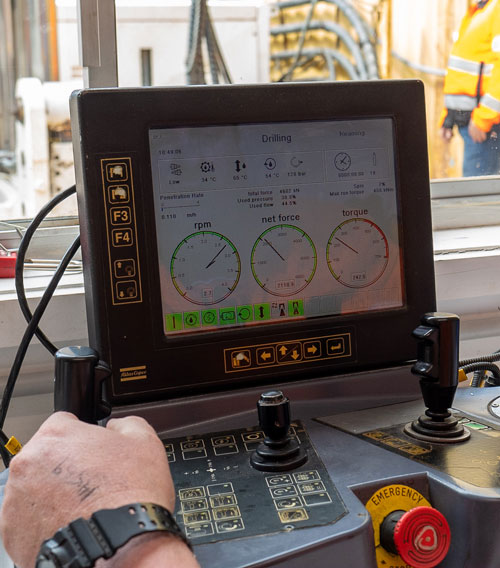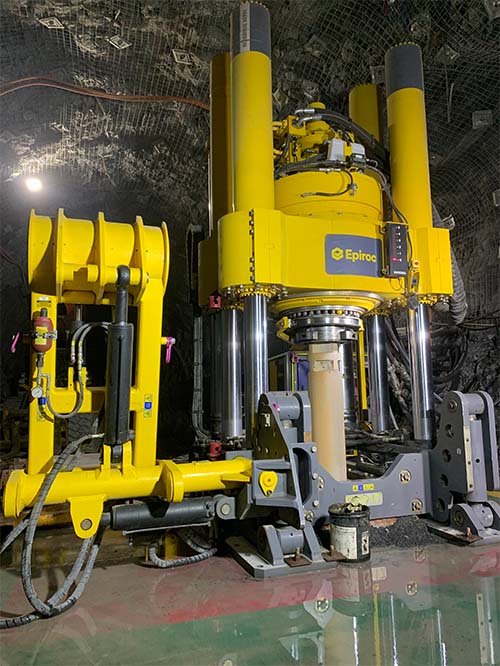RAISE DRILLING
A non-blasting mechanical method of excavating full-face circular diameter raises through rock. Raise drilling is the safest and most efficient approach to creating vertical and sub-vertical openings in mines and construction projects, and is truly cost-effective. It can be used to create ventilation shafts, escape ways, exhaust shafts and slot rises to assist in the extraction of ore.
Raise drilling uses specially designed tungsten carbide cutters to penetrate and break the rock using low rotation and high thrust, which results in a smooth wall. It is often used for ventilation, escape ways and slots for stoping operations. It can be used for vertical and angled holes.


There are two main operations that use raise drilling:
CONVENTIONAL RAISE DRILLING
Conventional raise drilling is a drilling method that requires a pilot hole to be drilled from level to level. A larger diameter reaming head, with a series of cutters with tungsten carbide buttons, is installed to the drill string and back-reamed to the top of the shaft. Conventional raise drilling can be used for rises as small as 1.1m in diameter up to 6.0m diameter shafts and over 1000m in total depth.
BOXHOLE
Boxhole boring is a method of drilling blind up-hole rises between levels normally seen in a single pass. These can be drilled at any angle from as low as 30° from vertical. Boxhole rises are usually between 0.66m diameter and 0.75m diameter.